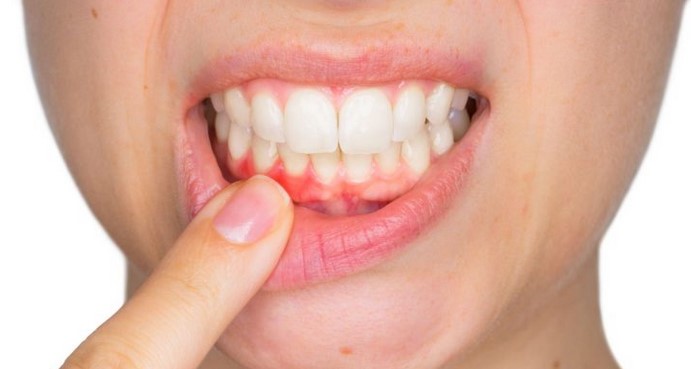
Gum pain can be a sign of a variety of dental issues, ranging from minor to serious. It can be caused by a number of factors, including gum disease, tooth decay, and even certain foods and drinks. Knowing the common triggers of gum discomfort can help you identify the cause of your gum pain and take the necessary steps to treat it. In this article, we will discuss the most common causes of gum pain and how to address them.
Identifying the Causes of Gum Pain: Common Triggers and How to Avoid Them
Gum pain can be a real nuisance, and it can be difficult to identify the cause. Fortunately, there are some common triggers that can lead to gum pain, and understanding them can help you avoid it.
The most common cause of gum pain is gum disease. This is an infection of the gums that can be caused by poor oral hygiene. If you don’t brush and floss regularly, plaque can build up on your teeth and cause inflammation and infection in your gums. To avoid gum disease, make sure to brush and floss your teeth at least twice a day and visit your dentist regularly for check-ups and cleanings.
Another common cause of gum pain is tooth decay. If you don’t brush and floss regularly, food particles can get stuck in your teeth and cause cavities. Cavities can lead to gum pain and infection, so it’s important to brush and floss regularly to prevent them.
Injury to the gums can also cause gum pain. If you bite your gums or use a hard-bristled toothbrush, you can damage the delicate tissue of your gums and cause pain. To avoid this, make sure to use a soft-bristled toothbrush and be gentle when brushing and flossing.
Finally, certain medications can cause gum pain. Some medications can cause dry mouth, which can lead to gum irritation and pain. If you’re taking a medication that causes dry mouth, talk to your doctor about ways to reduce the side effects.
Gum pain can be a real nuisance, but understanding the common triggers can help you avoid it. Make sure to brush and floss regularly, visit your dentist regularly, and be gentle when brushing and flossing. If you’re taking a medication that causes dry mouth, talk to your doctor about ways to reduce the side effects. With a few simple steps, you can keep your gums healthy and pain-free.
Understanding the Link Between Gum Pain and Oral Health: What You Need to Know
Good oral health is essential for overall health and wellbeing. Unfortunately, many people experience gum pain, which can be a sign of an underlying oral health issue. In this article, we’ll discuss the link between gum pain and oral health, and what you need to know to keep your mouth healthy.
Gum pain can be caused by a variety of factors, including gum disease, tooth decay, and infection. Gum disease, also known as periodontal disease, is an infection of the gums that can cause inflammation, redness, and pain. If left untreated, it can lead to tooth loss and other serious health problems. Tooth decay is caused by bacteria that feed on the sugars in food and drink, producing acid that can erode the enamel of the teeth. This can lead to cavities, which can cause pain and sensitivity. Infection can also cause gum pain, as bacteria can enter the gums through cuts or other openings.
It’s important to take steps to prevent gum pain and other oral health issues. Brushing and flossing regularly can help remove plaque and bacteria from the teeth and gums, reducing the risk of gum disease and tooth decay. Additionally, regular visits to the dentist can help detect any issues early on, allowing for prompt treatment.
If you’re experiencing gum pain, it’s important to seek medical attention. Your dentist can diagnose the cause of the pain and recommend the appropriate treatment. In some cases, this may involve antibiotics or other medications. In more severe cases, surgery may be necessary.
Gum pain can be a sign of an underlying oral health issue, so it’s important to take steps to prevent it. Regular brushing and flossing, as well as regular visits to the dentist, can help keep your mouth healthy and free of pain. If you’re experiencing gum pain, it’s important to seek medical attention to determine the cause and receive the appropriate treatment.In conclusion, gum pain can be caused by a variety of factors, including poor oral hygiene, gum disease, and certain medications. It is important to practice good oral hygiene and visit your dentist regularly to help prevent gum pain. Additionally, if you are taking any medications that may be causing gum discomfort, it is important to speak to your doctor about alternative treatments. By understanding the common triggers of gum discomfort, you can take steps to prevent and manage gum pain.